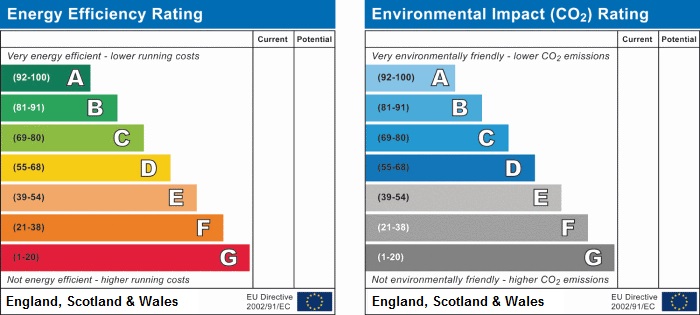
January 22nd, 2020 by
From 1st April 2020, private landlords have to abide by new, stricter heating regulations. This guide will tell you all you need to know about these new laws, whether you’ll be affected, and all you need to know.
What Are MEES Regulations?
 MEES stands for Minimum Energy Efficiency Standards, and they’ve been in place since April 2018. These laws state that private rental properties must have an Energy Performance Certificate (EPC) grade of E or above. The final deadline for ensuring rental properties in England and Wales meet these new standards is 1st April 2020. Scotland has had similar laws in place since 2016, but there are currently no comparable regulations in Northern Ireland.
MEES stands for Minimum Energy Efficiency Standards, and they’ve been in place since April 2018. These laws state that private rental properties must have an Energy Performance Certificate (EPC) grade of E or above. The final deadline for ensuring rental properties in England and Wales meet these new standards is 1st April 2020. Scotland has had similar laws in place since 2016, but there are currently no comparable regulations in Northern Ireland.
Do the MEES Regulations Apply to Me?
MEES laws only apply to properties let on assured tenancies, regulated tenancies, and domestic agricultural tenancies that are required to have an EPC rating. If the property is legally exempted from having an EPC rating for any reason, MEES laws do not apply.
What Do I Need to Do?
 What you need to do depends on the date your current tenancy agreement started.
What you need to do depends on the date your current tenancy agreement started.
- If your current tenancy period started on 1st April 2018 or later, you must immediately improve the relevant property’s EPC rating to E or above. The work must be completed before 1st April 2020.
- If your current tenancy period started before 1st April 2018 and will run until after 1st April 2020, you must improve the relevant property’s EPC rating to E or above by 1st April 2020.
- If your current tenancy period started before 1st April 2018 but you plan to enter a new tenancy period before 1st April 2020 (this can be with a new tenant or it could be a renewal of your existing tenant’s agreement) you must improve the property’s EPC rating to an E or above before the new agreement begins.
If the property in question is empty and you’re not planning to put it on the market, you don’t need to take any action for now. When you decide to put it back on the market, you’ll need to make sure it’s in line with MEES regulations.
Improving Your Property
 Landlords are expected to spend up to £3500 including VAT to improve their property before the deadline. You may be eligible for funding to help with this – to find out more about ECO funding and other programmes, click here.
Landlords are expected to spend up to £3500 including VAT to improve their property before the deadline. You may be eligible for funding to help with this – to find out more about ECO funding and other programmes, click here.
If you don’t qualify for funding and can’t fund the required improvements yourself, you can apply for a Government exemption. There are several different kinds of exemptions you can apply for which you should read up on if you aren’t able to improve your property in time.
How to Improve Your Property
The scoring system for EPC improvements has not been made public, but things like modern cavity wall insulation, fully double glazed windows, and low energy bulbs will all contribute towards an improved score. Many flats are fitted with electric heating – if this is the case for your property, upgrading to a modern Lot 20 compliant heating system will also improve your certificate if it has a thermostat. Smart heaters that you can control using a smartphone app will score even higher.
How Can Lot 20 Heaters Help?
 Lot 20 heaters are considered 100% efficient at the point of use, meaning all of the energy they use is converted into heat. This makes them the ideal choice for properties where fitted gas central heating isn’t practical, such as small flats. Considering the short amount of time remaining and the high cost landlords are expected to pay to do so, efficient electric heaters are an increasingly popular solution.
Lot 20 heaters are considered 100% efficient at the point of use, meaning all of the energy they use is converted into heat. This makes them the ideal choice for properties where fitted gas central heating isn’t practical, such as small flats. Considering the short amount of time remaining and the high cost landlords are expected to pay to do so, efficient electric heaters are an increasingly popular solution.
What Happens If I Don’t Improve My Property?
If you don’t improve your property and don’t successfully apply for an exemption before the deadline, you may be penalised by your local council. Councils can request information about your property and tenancy agreement from you, and found in breach of the regulations you may face fines of up to £4000.
MEES Deadlines for Tenants
If you are a tenant, you don't need to do anything unless you're sub-letting. However, if you know your home is below the required MEES standards, bring this up with your landlord.
Be aware that your landlord may attempt to charge you for any improvement works depending on the terms of your tenancy agreement. The law does state this is the responsibility of the landlord, but you may need to discuss this with your landlord or an advice charity such as Shelter for more information as landlords could argue the improvement works will benefit you in the form of reduced heating bills.
Commercial Properties
There is an extended deadline for commercial properties. All of the above still applies apart from the deadline. For rented commercial properties such as offices and shops, the deadline is 1st April 2023.
Comments
Leave a reply
Your e-mail address will not be published. All fields are required


